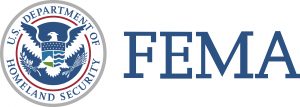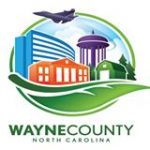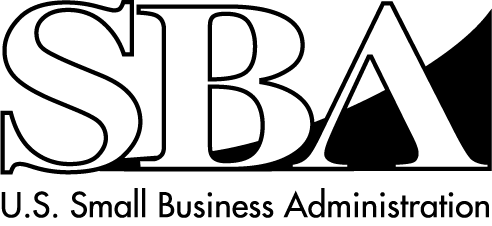Recovery Centers – Wayne Closed Permanently, Others Due to Weather
Disaster Recovery Centers: Operation Time Change, Locations, Available Resources
Disaster Recovery Centers in Wayne and Surrounding Counties
The FEMA/NC Emergency Management Disaster Recovery Centers will be closed Saturday, Jan. 7 due to inclement weather.
The following centers are open 9 a.m.-6 p.m., Monday-Friday and 9 a.m.-1 p.m. on Saturdays.
Bertie County (closing Nov. 17 at 6 p.m.)
Bertie County Council on Aging
103 West School Street,
Windsor, NC 27983
Bladen County (closed Nov. 18)
Powell Melvin Agricultural Service Center
450 Smith Circle
Elizabethtown, NC 28337
Brunswick County (closed Nov. 12)
Emergency Services Center
3325 Old Ocean Highway
Bolivia, NC 28422
Columbus County
Employment Security Commission
913 Jefferson Street
Whiteville, NC 28472
Craven County (closed Nov. 12)
Old Family Dollar Store
281 NC Hwy 43
Vanceboro, NC 28586
Cumberland County
Department of Social Services
1225 Ramsey Street
Fayetteville, NC 28301
Edgecombe County (this new location opened Dec. 16)
Edgecombe County Health Department
3003 N. Main Street
Tarboro, NC 27886
Greene County (closed Nov. 12)
Snow Hill Fire Department
201 Carolina Drive
Snow Hill, NC 28580
Johnston County
Johnston County Industries
912 N. Brightleaf Blvd.
Smithfield, NC 27577
Lenoir County
NOVA Building
105 West Caswell Street
Kinston, NC 28501
Pender County (closed Nov. 18)
Malpass Corner Elementary School
4992 Malpass Corner Road
Burgaw, NC 28425
Pitt County (closed Nov. 22)
Pitt County Agriculture Center
403 Government Circle
Greenville, NC 27834
Robeson County
Old Kmart
2750 N Roberts Ave.
Lumberton, NC 28358
Sampson County (closed Nov. 18)
Sampson County Human Services
360 County Complex Road, Suite 200, Room 274
Clinton, NC 28328
Washington County (closed Nov. 10)
1069 Airport Road
Plymouth, NC 27962
Wayne County (closed Jan. 6, 6 p.m.)
W.A. Foster Recreation Center (top of the hill of Mina Weil Park)
1012 S. John St., Room 110.2
Goldsboro, NC 27530
Disaster recovery centers operated by North Carolina Emergency Management and FEMA are a source of support for Hurricane Matthew survivors. However, when a center closes, you can still get the help you need with just a phone call. FEMA will be working with the state and our other partners as long as we are needed.
Here’s how you can stay in touch with FEMA – just call!
Call the FEMA Helpline at 800-621-3362 for voice, 711 and Video Relay Service. If you are deaf, hard of hearing or have a speech disability and use a TTY, call 800-462-7585. These toll-free numbers are open from 7 a.m. to 11 p.m., seven days a week. Help is available in many languages.
When you call FEMA with questions or for updated information, you should refer to the nine-digit registration number you received when you applied for aid. This number is on all correspondence you receive from FEMA and is a key identifier in tracking assistance requests.
Call us if you change your address or phone number – even if only temporarily – and update that information with FEMA.
If you have questions about your National Flood Insurance Program claim, call FEMA’s Helpline at 800-621-3362 and choose option two.
You can stay in touch in other ways:
- Online at DisasterAssistance.gov.
- Download the FEMA Mobile App to get important information such as severe weather conditions.
- Talk with FEMA’s Disaster Survivor Assistance team members. They are in several affected areas and are there to answer your questions and provide up-to-date information regarding your application status, and referrals to help fill any outstanding needs you may have. They wear identifiable clothing and carry photo identification.
Advantages of Visiting a Joint State/FEMA Disaster Recovery Center

Release date: October 29, 2016
Release Number: NR 028
A Disaster Recovery Center (DRC) is a readily accessible facility where you may go for information about federal, state and other disaster assistance programs, and to ask questions related to your situation. It is more personal than the telephone.
You can meet face-to-face with representatives from North Carolina Emergency Management, Federal Emergency Management Agency, U.S. Small Business Administration, volunteer groups and other agencies at the centers to get answers to your questions about disaster assistance.
Some of the services offered at a DRC may include:
- Guidance about disaster recovery and eligibility
- Assistance applying
- Application status updates
- Clarification of any written correspondence received
- Please read your FEMA letter carefully to understand FEMA’s decision and what you need to do next. Many times there is just a request to submit extra documents in order for FEMA to process your application.
- You may need to include an insurance settlement letter, proof of residence, proof of ownership of the damaged property, and/or proof that the damaged property was your primary residence at the time of the disaster.
- Housing assistance and rental resource information you may not know is available
- Referrals to other agencies and state programs that may provide further assistance
- Information about disaster related funeral and other needs assistance
- Information about low-interest disaster loans.
All disaster recovery centers offer effective communication options, including captioned phones, iPads with video remote interpreting, assistive listening devices, magnifiers and onsite American Sign Language (ASL) interpreters upon request. Both Braille and Large Print FEMA documents are available. If you require a reasonable accommodation (ASL interpreting, Braille large print, etc.) while visiting a DRC, call the FEMA helpline at 800-621-3362 for voice, 711 and Video Relay Service (VRS). If you are deaf, hard of hearing or have a speech disability and use a TTY, call 800-462-7585.
To locate the nearest DRC, download the FEMA mobile app, visit fema.gov/DRC, or call the FEMA helpline. Hours of operation are Monday through Saturday from 10 a.m. to 7 p.m. (until further notice).
If you haven’t already registered with FEMA for federal disaster assistance, you’re encouraged to register before visiting a DRC if possible. If you need help with registering, you can do so at the DRC. You can register by downloading the FEMA mobile app, online at DisasterAssistance.gov or by calling the FEMA helpline.
For more information on the North Carolina recovery, visit readync.org and fema.gov/disaster/4285. Follow FEMA on Twitter at @femaregion4 and North Carolina Emergency Management at @ncemergency.
###
Disaster Recovery Centers are Accessible to All Survivors

Release date: October 21, 2016
Release Number: NR 013
All North Carolina disaster survivors, including people with disabilities, can access resources at State/FEMA disaster recovery centers, or DRCs. DRCs help survivors apply for federal assistance, learn about the types of assistance available, learn about the appeals process and get updates about applications. You can find the closest DRC by going online at
www.fema.gov/drc. Hours are Monday through Saturday 9 a.m. to 7 p.m. and Sunday noon to 5 p.m.
Resources and Services available at DRCs
All DRCs are physically accessible and equipped with tools to accommodate disaster survivors’ needs.
Every disaster survivor has equal access to disaster information and assistance:
- All DRCs offer effective communication options, including captioned phones, iPads with video remote interpreting, assistive listening devices, magnifiers and onsite American Sign Language (ASL) interpreters upon request.
- Both Braille and Large Print FEMA documents are available.
- If you need an accommodation or assistance due to a disability, please notify FEMA staff at the time of registration or anytime during the assistance process.
- If you require a reasonable accommodation (ASL interpreting, Braille large print, etc.) while visiting a DRC, call the appropriate Helpline number for support. The toll-free numbers are open from 7 a.m. to 11 p.m., seven days a week.Help is available in most languages, and information on the registration process is available in ASL at http://www.fema.gov/media-library/assets/videos/111546.
Additional Services Available
- Accessible parking, ramps and restrooms are available to survivors.
- If survivors cannot transport themselves to a DRC, FEMA will arrange a home visit. Call the FEMA Helpline to request assistance at 800-621-3362.
Survivors may also register for assistance in the following ways
- Online at DisasterAssistance.gov
- Call the FEMA Helpline at 800-621-3362. Applicants who use 711 or Video Relay Service may also call 800-621-3362. Persons who are deaf, hard of hearing or have a speech disability and use a TTY may call 800-462-7585.
# # #
Disaster recovery assistance is available without regard to race, color, religion, nationality, sex, age, disability, English proficiency or economic status. If you or someone you know has been discriminated against, call FEMA toll-free at 800-621-3362 or TTY at 800-462-7585.
FEMA’s mission is to support our citizens and first responders to ensure that as a nation we work together to build, sustain, and improve our capability to prepare for, protect against, respond to, recover from, and mitigate all hazards. Follow FEMA on twitter at @femaregion4. Download the FEMA app with tools and tips to keep you safe before, during, and after disasters.
Dial 2-1-1 or 888-892-1162 to speak with a trained call specialist about questions you have regarding Hurricane Matthew; the service is free, confidential and available in any language. They can help direct you to resources. Call 5-1-1 or 877-511-4662 for the latest road conditions or check the ReadyNC mobile app, which also has real-time shelter and evacuation information. For updates on Hurricane Matthew impacts and relief efforts, go to ReadyNC.org or follow N.C. Emergency Management on Twitter and Facebook. People or organizations that want to help ensure North Carolina recovers can visitNCdisasterrelief.org or text NCRecovers to 30306.
The U.S. Small Business Administration (SBA) is the federal government’s primary source of money for the long-term rebuilding of disaster-damaged private property. SBA helps homeowners, renters, businesses of all sizes, and private non-profit organizations fund repairs or rebuilding efforts and cover the cost of replacing lost or disaster-damaged personal property. These disaster loans cover losses not fully compensated by insurance or other recoveries and do not duplicate benefits of other agencies or organizations. For more information, applicants may contact SBA’s Customer Service Center by calling (800) 659-2955, emailing disastercustomerservice@sba.gov, or visiting SBA’s Web site at www.sba.gov/disaster. Deaf and hard-of-hearing individuals may call (800) 877-8339.
The City of Goldsboro was notified by Manuel Portela, FEMA Intergovernmental Affairs Specialist – External Affairs, that Wayne County’s Disaster Recovery Center will likely close in two weeks* and that the deadline for registering for FEMA disaster relief is Jan. 9, 2017. Mr. Portela strongly encourages everyone who has not filed yet to contact him immediately at 225-916-0094 or Manuel.Portela@fema.dhs.gov.
If you cannot go to the Disaster Recovery Center (W.A. Foster Recreation Center, 1012 S. John St., Room 110.2, Goldsboro, open 9 a.m.-6 p.m. Monday-Friday, and 9 a.m.-1 p.m. on Saturdays), you can register online at DisasterAssistance.gov, download the FEMA app, or call 800-621-3362 for voice, 711 and Video Relay Service. If you are deaf, hard of hearing or have a speech disability and use a TTY, call 800-462-7585. The service is available from 7 a.m. to 11 p.m. daily. Multilingual operators are available.
FEMA’s Transitional Sheltering Assistance program, which provides hotel accommodations for survivors unable to live in damaged property, is scheduled to end Jan. 7, 2017. NCHousingSearch.org helps people displaced by Hurricane Matthew locate available, affordable rental housing. Call Monday through Friday, 9 a.m. to 8 p.m., at 877-428-8844. The FEMA Housing Portal (https://asd.fema.gov/inter/hportal/home.htm) is another housing resource.
If you received a low-interest disaster loan application from the U.S. Small Business Administration, complete it before the Jan. 9, 2017, deadline to keep the federal assistance process moving. You do not have to accept a loan. If you do not qualify for the loan, you may be eligible for FEMA grant money but you have to have applied for the loan and been denied for the process to move back to FEMA.
*According to the NC Department of Public Safety, the Wayne County center will close at 6 p.m. on Jan. 6. The goal is to close all DRCs by Feb. 3.

The Wayne County Board of Commissioners have extended the waiver through March 31 of the fees
- in the environmental health area for inspections of wells and septic systems damaged in Hurricane Matthew and the subsequent flooding and
- for building permits secured for construction or reconstruction related to Hurricane Matthew and the subsequent flooding.
On October 20, 2016, the board had approved a 45-day waiver of those fees as well as fees for debris disposal at the county landfill.

Release date: Dec. 8, 2016
Release Number: 17-222, NC 14911/14912
The U.S. Small Business Administration (SBA) encourages homeowners and renters, businesses of all sizes, and private nonprofit organizations to apply for a disaster loan before the Jan. 9, 2017 deadline. Anyone in the declared counties in North Carolina with damages caused by Hurricane Matthew that occurred on Oct. 4 –24, 2016 should apply for the disaster recovery loan program.
The disaster declaration covers the counties of Anson, Beaufort, Bertie, Bladen, Brunswick, Camden, Carteret, Chatham, Chowan, Columbus, Craven, Cumberland, Currituck, Dare, Duplin, Edgecombe, Gates, Greene, Halifax, Harnett, Hertford, Hoke, Hyde, Johnston, Jones, Lee, Lenoir, Martin, Moore, Nash, Northampton, Onslow, Pasquotank, Pender, Perquimans, Pitt, Richmond, Robeson, Sampson, Scotland, Tyrrell, Wake, Washington, Wayne and Wilson in North Carolina, which are eligible for both Physical and Economic Injury Disaster Loans from the SBA.
Small businesses and most private nonprofit organizations in the following adjacent counties and independent cities are eligible to apply only for SBA Economic Injury Disaster Loans: Alamance, Durham, Franklin, Granville, Montgomery, New Hanover, Orange, Pamlico, Randolph, Stanly, Union and Warren.
SBA disaster loans are available to cover uninsured losses from the disaster. Interest rates are as low as 4 percent for businesses, 2.625 percent for private nonprofit organizations, and 1.563 percent for homeowners and renters. Loan terms can be up to 30 years.
To be considered for all forms of disaster assistance, applicants should register online at www.DisasterAssistance.gov or download the FEMA mobile app. If the online or mobile access is unavailable, applicants should call the FEMA toll-free helpline at 800-621-3362. Those who use 711-Relay or Video Relay Services should call 800-621-3362.
Applicants may apply online using the Electronic Loan Application (ELA) via SBA’s secure website at https://disasterloan.sba.gov/ela.
Disaster loan information and application forms may also be obtained by calling the SBA’s Customer Service Center at 800-659-2955 (800-877-8339 for the deaf and hard-of-hearing) or by sending an email to disastercustomerservice@sba.gov.
Loan applications can be downloaded from www.sba.gov/disaster. Completed applications can be returned to a recovery center or mailed to: U.S. Small Business Administration, Processing and Disbursement Center, 14925 Kingsport Road, Fort Worth, TX 76155.
The filing deadline to submit applications for physical property damage is Jan. 9, 2017. The deadline for economic injury applications is July 10, 2017.
The US Department of Housing and Urban Development (HUD) is helping displaced households recover from Hurricane Matthew.
HUD disaster-related services for North Carolina include:
Disaster assistance for those who lived in public housing, a Section 8 unit or have a Housing Choice Voucher. Survivors should contact the housing provider that assisted them before the disaster and contact HUD at (336) 851-8058 or email at hudhelpingu@hud.gov.
Homeowner information and assistance regarding foreclosure or questions about next steps with their home. Survivors may contact a HUD-approved housing counseling agency by calling 800-569-4287. Survivors do not have to have a FHA loan to meet with a HUD approved housing counseling agency and there is never a fee for foreclosure prevention counseling.
Survivors believing they have experienced housing discrimination after the disaster should call 888-560-8913. Persons with questions about housing discrimination may call 800-669-9777.
Individuals affected by Hurricane Matthew are encouraged to register online at DisasterAssistance.gov, download the FEMA app, or call 800-621-3362 for voice, 711, Video Relay Service, or other relay service. Survivors who are deaf, hard of hearing or who have difficulty speaking and use a TTY, should call 800-462-7585 directly.




